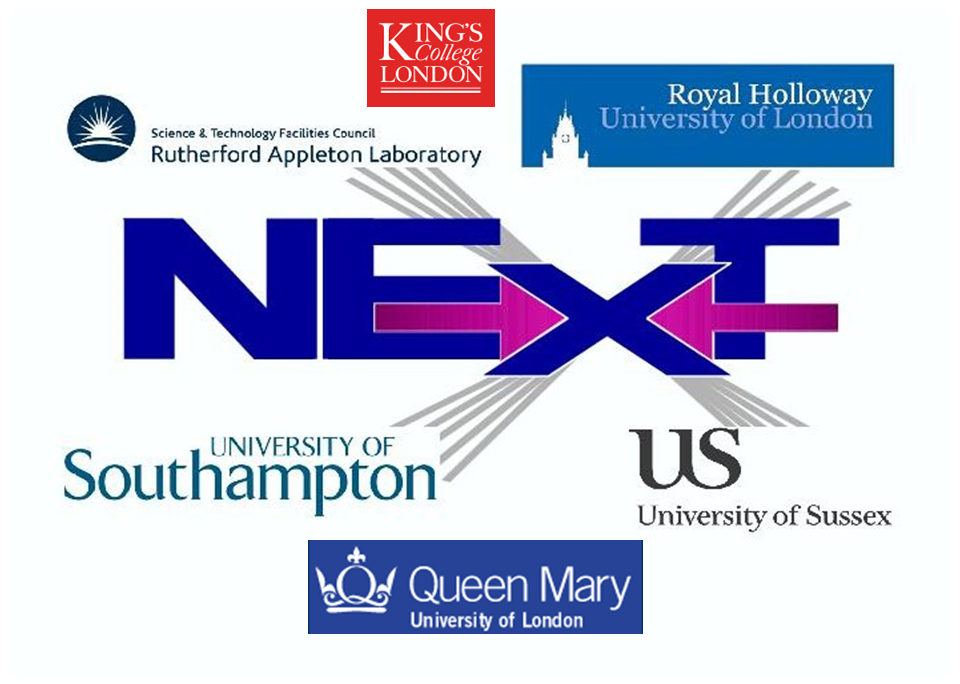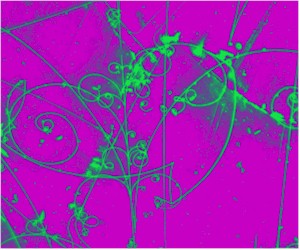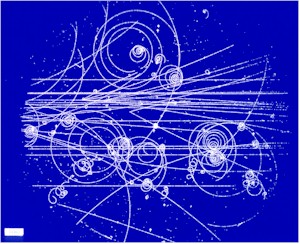
The NExT Institute
Member of the SEPnet Partnership
![[SEPnet]](images/SEPnet.jpg)
New connections between Experiment and Theory
Mission Statement
To further the goals of Particle Physics through the fostering and promotion of interactions between theory and experiment in an inter-disciplinary and multi-sited environment.
About the Institute
We are at a cross-road in High Energy Particle Physics. A new and exciting era has just begun with the arrival of data from the experiments on the Large Hadron Collider (LHC) at CERN. The rapid and accurate interpretation of this data will point the way to a higher level of understanding of the fundamental interactions of matter and forces, as well as possibly paving the way to follow towards an underlying grand unified theory. To achieve all this, a new kind of collaboration between theorists and experimentalists is required. The NExT Institute enables such close interactions.
 |
 |
The NExT Institute was created in 2006 by the High Energy Physics (SHEP) group at the School of Physics & Astronomy of University of Southampton and the Particle Physics Division (PPD) at the Rutherford Appleton Laboratory (RAL), now part of the Science and Technology Facilities Council (STFC). (Here you can find the old webpages.)
The original proposal for the NExT Institute is contained in this document. The signatories were Dr S Moretti and Prof CT Sachrajda from SHEP plus Dr CH Shepherd-Themistocleous and Prof WJ Womersley from RAL-PPD.
In 2008 the NExT Institute expanded to include the Particle Physics group at the Royal Holloway, University of London (RHUL) and both the theoretical and experimental Particle Physics groups at the University of Sussex. This followed the approval by the Higher Education Funding Council for England (HEFCE) of funding for 12.5 million pounds, to bring together, promote and sustain physics provision in six departments in the South East of England through the South East Physics network (SEPnet), from which the NExT Institute secured a grant in excess of 1.5 million pounds over 5 years, including a sizable contribution from the Science & Technology Facilities Council (STFC). This generated 6 permanent positions, each of which is being held jointly between theory and experiment and by pairings of two amongst the Institute nodes. As of October 2011, also Queen Mary University of London (QMUL) is part of our network, through both the Centre for Research in String Theory (CRST) and the Particle Physics Research Centre (PPRC). In addition, the enlarged Institute has put in place a new international visitor programme as well as a novel graduate school (PhD and MSc degrees), which involves mixed (theoretical and experimental) training and supervision, networking across all nodes, student placements at the experiment locations (such as CERN) and in industry, videolinked delivery of seminars and graduate lectures, annual workshops and a final graduate conference.
In June 2013, the SEPnet grant has been renewed for a further 5 years, for a total of 13.1 million pounds, eventually enabling in particular the creation of a novel Graduate network (GRADnet), to which NExT will contribute by implementing a truly multi-disciplinary training and research model encompassing (alongside the pre-existing theoretical and experimental particle physics activities) also astronomy/astrophysics and detector physics, including further formal links with industry in the form of a placement programme and a series of employer workshops.
In April 2020, the Institute welcomed King's College London (KCL) as as one of its constituent nodes, through the affiliation of both the Theoretical Particle Physics & Cosmology (TPPC) and Experimental Particle & Astroparticle Physics (EPAP) groups.
The NExT PhD training programme is part of the SEPnet Graduate School and you can find details of the NExT PhD School here. The NExT PhD School Committee which set it up is found here. Dr. Ulla Blumenschein (QMUL) is the Director of the NExT PhD School.
Associated members to the NExT Institute are the Particle Physics Group at the University of Bristol, the Electronic and Computing Engineering group at Brunel University London and the High Energy Physics group at University College London.
Meetings at the NExT Institute
The upcoming NExT Seminar Meeting will take place in KCL on 15 May 2024. Watch this space for further information.
![]()
The Fourteenth NExT PhD Workshop will take place at The Cosener's House (Abingdon)
on 15-18 July 2024: there is now a webpage and the workshop is open for registrations.
![]()
Permanent positions available at the NExT Institute
There are none open at present.
Post-doctoral positions available at the NExT Institute
We have now launched the conceptually new NExT Responsive Fellowship scheme: see here for more information and the first position of this kind.
![]()
If you are generally interested in a Post-Doctoral (PD) position please send a CV, a research statement and three letters of recommendations to us at any time.
Post-graduate positions available at the NExT Institute
There is currently a position available joint between Southampton & QMUL, see here for the announcement.
![]()
There is always some possibility available, please contact us at any time for information.
Visiting positions available at the NExT Institute

A NExT visitor programme linked to the RAL Centre for Fundamental Physics (CfFP) exists: contact us if you are interested in spending some time in Southampton, RAL, RHUL, Sussex, KCL and/or QMUL.
Other Opportunities
Lots of external funding schemes that may enable you to come and join us exist, please get in touch.
Director:
Prof. S. Moretti
Deputy Director:
Dr. C. H. Shepherd-Themistocleous
Secretariat:
Jacqui & Gill
NExT Steering Committee:
Current Memberships
![[NExT]](images/next_logo_small.png)